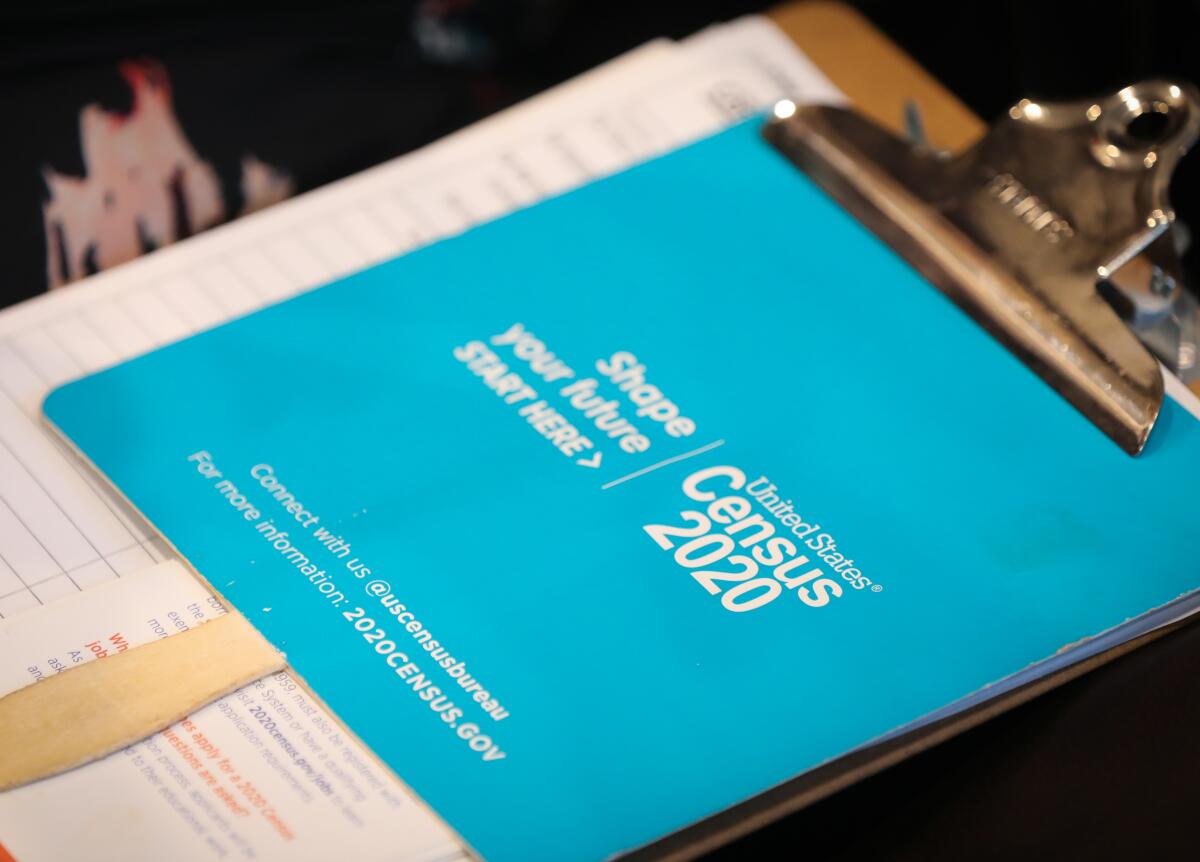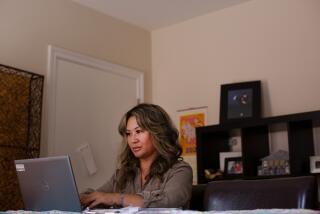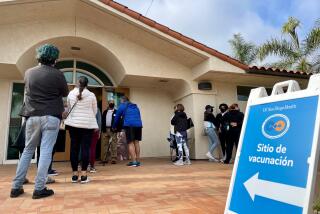How the coronavirus could endanger the 2020 census

- Share via
First, the Census Bureau went without a director for over a year. Then the threat of a citizenship question being added to the census prompted fears of a depressed census count in immigrant communities. And in what has been a chaotic ramp up to the start of the 2020 census, the coronavirus has joined the list of challenges facing the decennial enumeration, a process that began Thursday when most households across the country received an invitation in the mail to fill out the survey.
The coronavirus presents a challenge to the 2020 census because human transmission of the virus has prompted public health officials to discourage large public gatherings and limit social interactions. On Wednesday, Gov. Gavin Newsom recommended communities cancel gatherings with more than 250 people through the end of the month.
Grass-roots organizations and local census “complete count committees” have been planning to use public spaces such as libraries and community centers to raise awareness about the census — and help communities fill out the survey. But new and emerging guidelines could hamstring their efforts to meet with as many people as possible face-to-face.
Limiting public interactions poses a particular challenge for the count of Latinos and immigrants, who often depend on in-person interactions to help them understand the census — and its importance to their economic and political power.
To ensure an accurate count, census takers will try to track down those who do not respond to the census by late April by knocking on doors between May and July. Though no physical interaction is required to complete the count, concerns over contracting the virus could affect the traditional door-to-door process.
California’s Dianne Feinstein is among a coalition of U.S. senators who sent a letter to the Census Bureau’s director on March 4 urging it to be prepared to assess whether concerns about the virus are “depressing census response rates” and to develop contingency plans to help ensure “a full and accurate population count.”
The census is a constitutionally mandated process that has occurred since 1790. It has been administered during a world war, earthquakes and a Great Depression, and yet the mission has remained the same: By trying to count every person in our country, our communities attain their rightful share of political representation and federal resources for vital programs such as the early childhood program Head Start and Section 8 housing, which provides subsidies to low-income residents.
The coronavirus is yet another major reminder of why it’s important for our state to have access to accurate census data.
An accurate census count can help ensure that we have the necessary public health services to provide a safety net to those in need, whether that means properly funding community health clinics, ensuring child-care needs are met or devoting resources to emergency preparedness. Based on the 2010 census, California received nearly $56 billion for Medi-Cal, its version of Medicaid.
Civic organizations have historically planned large-scale rallies to raise awareness of the census. Because of the coronavirus, these events will need to be postponed or reconfigured to become smaller in size, following guidance from state and local health agencies. In addition, those conducting in-person outreach will need to make a point of adhering to official guidelines on how to do so safely.
Prompt attention to the census can prevent a census taker from knocking on your door. It can be filled out online, by phone or via a paper questionnaire that will be sent to households in mid-April as a reminder to fill out the survey.
Ordinary residents can also play a significant role in ensuring an accurate census count. They can raise awareness on social media by reposting key census information from trusted sources such as the California census office. They can engage with relatives, friends and co-workers to see whether they need help understanding how to fill out the census. The young, who are digital natives, can become involved by going online and connecting with neighbors to help them fill out the census.
Local ethnic media, including radio, should augment census awareness campaigns, especially for non-English speakers. In California, multilingual radio stations such as Radio Bilingue in the Central Valley and KBBF-FM in the wildfire-stricken wine country of Northern California are running near-continuous public service announcements on why census participation matters.
In 2020, the coronavirus and the census count are inextricably linked. People across the state and country should view filling out the census the same way they do the increased need to wash their hands — as a civic duty.
Christian Arana is the policy director and Jacqueline Martinez Garcel is the chief executive officer of the Latino Community Foundation.
More to Read
A cure for the common opinion
Get thought-provoking perspectives with our weekly newsletter.
You may occasionally receive promotional content from the Los Angeles Times.









